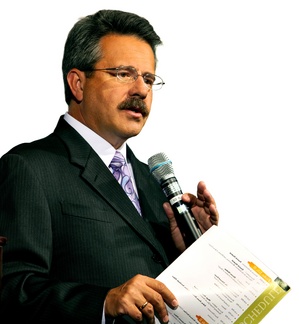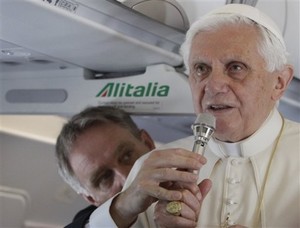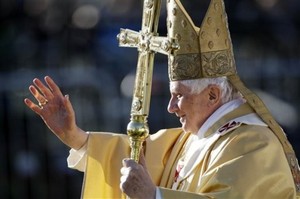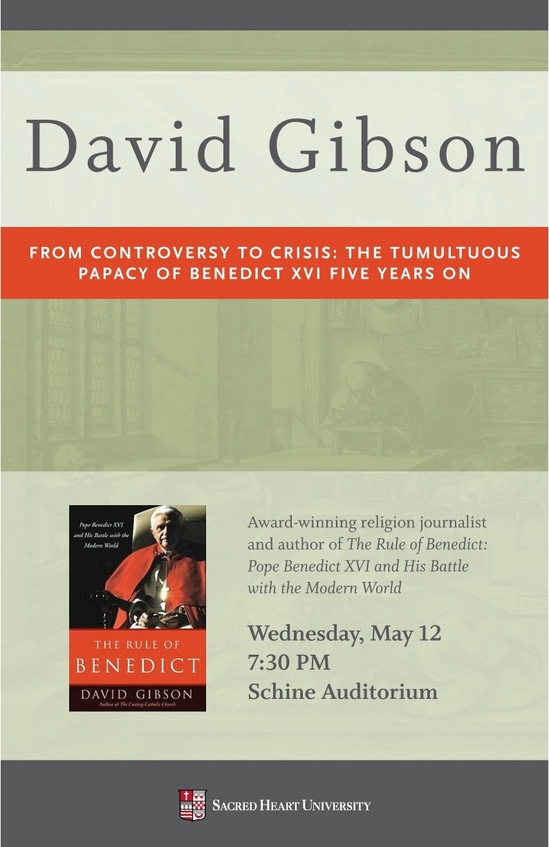 Coming to Christ –that’s what I am calling it when some comes into full communion with the Catholic Church (or Orthodoxy)– is not an easy thing for some people. Family, friends, employment, fear, and second-guessing the discernment can make “converting” all the more a royal pain. Only grace can sustain one’s move from one ecclesial body to another. A case in point has been those of the Anglican Communion coming to Catholic Church and now Byran Kemper, a baptized Catholic turn Presbyterian who founded the Stand True Ministries, among other things. Kemper is also the author of Social Justice Begins in the Womb (2010).
Coming to Christ –that’s what I am calling it when some comes into full communion with the Catholic Church (or Orthodoxy)– is not an easy thing for some people. Family, friends, employment, fear, and second-guessing the discernment can make “converting” all the more a royal pain. Only grace can sustain one’s move from one ecclesial body to another. A case in point has been those of the Anglican Communion coming to Catholic Church and now Byran Kemper, a baptized Catholic turn Presbyterian who founded the Stand True Ministries, among other things. Kemper is also the author of Social Justice Begins in the Womb (2010).
Tag: faith and reason
Cardinal Burke on the truth of human sexuality & fall of Christian culture
Raymond Cardinal
Burke, Prefect of the Supreme Tribunal of the Apostolic Signature, has been traveling lately. Most recently to Australia. There he spoke on the theme of “The Fall of the Christian West,” at a
symposium organized by the Australian Catholic Students Association, Sydney. He gave “particular attention to the witness to the truth regarding human sexuality, as fundamental to holiness of life, and to the question of conscience as the irreplaceable and secure guide in the pursuit of holiness of life.” The cardinal also reflected on martyrdom.
Among
many things said in the address the Cardinal said:
- quoting Benedict XVI said, we “need to form our consciences, in accord with the moral teaching of the Church … ‘our responsibility to make these criteria [these moral foundations] audible and intelligible once more for people today as paths of true humanity, in the context of our paramount concern for mankind'”
- “…our call to build anew a
strong Catholic culture, in fidelity to our vocation to give witness to Christ
and, therefore, to be martyrs for the faith” - “witness to the truth regarding
human sexuality, as fundamental to holiness of life, and to the question of
conscience as the irreplaceable and secure guide in the pursuit of holiness of
life.” - “The life of the martyr for the faith finds its center and source in the
Eucharistic sacrifice, in Eucharistic adoration, and in all forms of
Eucharistic devotion, especially visits to the Blessed Sacrament and spiritual
communion throughout the day” - “The Holy Eucharist not only strengthens us
spiritually to be true martyrs, but is the model of our martyrdom, pure and
selfless love, without condition, to the end.”
Patrick Madrid speaking in NYC March 18 & 19
 The Siena Forum for Faith and Culture will be hosting Patrick Madrid -of EWTN fame– at the Church of Saint Catherine of Siena (NYC) this
The Siena Forum for Faith and Culture will be hosting Patrick Madrid -of EWTN fame– at the Church of Saint Catherine of Siena (NYC) this
coming weekend!
new doors to knowing Christ, loving the Church, and spreading the Good News
that Christ is risen from the dead! For those who ask the questions, “Can an educated person
be Catholic?” Or, “Why be Catholic?”, Madrid’s talks will give good
answers. Even for those of us who are consider life-long Catholics Patrick
Madrid will be helpful.
pleased to host Patrick Madrid for a 2-day seminar based on his
book Search and Rescue: How You Can Help People Come Home to the
Church.
Continue reading Patrick Madrid speaking in NYC March 18 & 19
The task of science was AND remains a patient, passionate search for truth about the cosmos, nature, the constitution of the human being, Pope tells us
For those who think that the Catholic Church, orthodox Catholic theology, the Pope, or any right-thinking Catholic person in the 21st century is against science: think again. Take your head out of the sand; do some reading. Today, His Holiness address the distinguished members of the Pontifical Academy of Sciences meeting for their plenary assembly. The theme they’ve chosen to explore is “The Scientific Legacy of the Twentieth Century.”
Two papal hopes for future scientists: “the need for an interdisciplinary approach tied with philosophical reflection” and that the work of science “always be informed by the imperatives of fraternity and peace, helping to solve the great problems of humanity, and directing everyone’s efforts towards the true good of man and the integral development of the peoples of the world.”
Benedict addressed the following text to 80 scientists:
The history of science in the twentieth century is one of
undoubted achievement and major advances. Unfortunately, the popular image of
twentieth-century science is sometimes characterized otherwise, in two extreme
ways. On the one hand, science is posited by some as a panacea, proven by its
notable achievements in the last century. Its innumerable advances were in fact
so encompassing and so rapid that they seemed to confirm the point of view that
science might answer all the questions of man’s existence, and even of his
highest aspirations. On the other hand, there are those who fear science and
who distance themselves from it, because of sobering developments such as the
construction and terrifying use of nuclear weapons.
Science, of course, is not
defined by either of these extremes. Its task was and remains a patient yet
passionate search for the truth about the cosmos, about nature and about the
constitution of the human being. In this search, there have been many successes
and failures, triumphs and setbacks. The developments of science have been both
uplifting, as when the complexity of nature and its phenomena were discovered,
exceeding our expectations, and humbling, as when some of the theories we
thought might have explained those phenomena once and for all proved only
partial. Nonetheless, even provisional results constitute a real contribution
to unveiling the correspondence between the intellect and natural realities, on
which later generations may build further.
The progress made in scientific
knowledge in the twentieth century, in all its various disciplines, has led to
a greatly improved awareness of the place that man and this planet occupy in
the universe. In all sciences, the common denominator continues to be the notion
of experimentation as an organized method for observing nature. In the last
century, man certainly made more progress – if not always in his knowledge of
himself and of God, then certainly in his knowledge of the macro- and
microcosms – than in the entire previous history of humanity. Our meeting here
today, dear friends, is a proof of the Church’s esteem for ongoing scientific
research and of her gratitude for scientific endeavour, which she both
encourages and benefits from. In our own day, scientists themselves appreciate
more and more the need to be open to philosophy if they are to discover the
logical and epistemological foundation for their methodology and their
conclusions. For her part, the Church is convinced that scientific activity
ultimately benefits from the recognition of man’s spiritual dimension and his
quest for ultimate answers that allow for the acknowledgement of a world
existing independently from us, which we do not fully understand and which we
can only comprehend in so far as we grasp its inherent logic. Scientists do not
create the world; they learn about it and attempt to imitate it, following the
laws and intelligibility that nature manifests to us. The scientist’s
experience as a human being is therefore that of perceiving a constant, a law,
a logos that he has not created but that he has instead observed: in fact, it
leads us to admit the existence of an all-powerful Reason, which is other than
that of man, and which sustains the world. This is the meeting point between the
natural sciences and religion. As a result, science becomes a place of
dialogue, a meeting between man and nature and, potentially, even between man
and his Creator.
As we look to the twenty-first century, I would like to
propose two thoughts for further reflection. First, as increasing
accomplishments of the sciences deepen our wonder of the complexity of nature,
the need for an interdisciplinary approach tied with philosophical reflection
leading to a synthesis is more and more perceived. Secondly, scientific
achievement in this new century should always be informed by the imperatives of
fraternity and peace, helping to solve the great problems of humanity, and
directing everyone’s efforts towards the true good of man and the integral
development of the peoples of the world. The positive outcome of twenty-first
century science will surely depend in large measure on the scientist’s ability
to search for truth and apply discoveries in a way that goes hand in hand with
the search for what is just and good.
The Church does not work to be attractive…but is of service to the other…always, pope says
On the plane to Scotland this morning the Pope held the typical Q&A session with reporters. THE more important of the Q&A, in my opinion, is noted below. The questions are vetted prior to the asking.
Question:
The UK,
like many other Western countries – there is an issue that you have already
touched on in the first answer -it is considered a secular country. There is a
strong atheist movement, even for cultural reasons. However, there are also
signs that religious faith, particularly in Jesus Christ, is still alive on a
personal level. What can this mean for Catholics and Anglicans? Can anything be
done to make the Church as an institution, more credible and attractive to
everyone?
Answer:
I would say that a Church that seeks to be particularly
attractive is already on the wrong path, because the Church does not work for
her own ends, she does not work to increase numbers and thus power. The Church
is at the service of another: she serves, not for herself, not to be a strong
body, rather she serves to make the proclamation of Jesus Christ accessible,
the great truths and great forces of love, reconciling love that appeared in
this figure and that always comes from the presence of Jesus Christ. In this
regard, the Church does not seek to be attractive in and of herself, but must
be transparent for Jesus Christ and to the extent that she is not out for
herself, as a strong and powerful body in the world, that wants power, but is
simply the voice of another, she becomes truly transparent for the great figure
of Christ and the great truth that he has brought to humanity. The power of
love, in this moment one listens, one accepts. The Church should not consider
herself, but help to consider the other and she herself must see and speak of
the other. In this sense, I think, both Anglicans and Catholics have the same
simple task, the same direction to take. If both Anglicans and Catholics see
that the other is not out for themselves but are tools of Christ, children of
the Bridegroom, as Saint John says, if both carry out the priorities of Christ
and not their own, they will come together, because at that time the priority
of Christ unites them and they are no longer competitors seeking the greatest
numbers, but are united in our commitment to the truth of Christ who comes into
this world and so they find each other in a genuine and fruitful ecumenism.
Pope to Scotland –and the rest of us: pay attention to faith AND reason viz. Catholic identity
At one point in the Pope’s homily in Glasgow, Scotland, today he said:
The evangelization
of culture is all the more important in our times, when a “dictatorship of
relativism” threatens to obscure the unchanging truth about man’s nature,
his destiny and his ultimate good. There are some who now seek to exclude
religious belief from public discourse, to privatize it or even to paint it as
a threat to equality and liberty. Yet religion is in fact a guarantee of authentic
liberty and respect, leading us to look upon every person as a brother or
sister. For this reason I appeal in particular to you, the lay faithful, in
accordance with your baptismal calling and mission, not only to be examples of
faith in public, but also to put the case for the promotion of faith’s wisdom
and vision in the public forum. Society today needs clear voices which propose
our right to live, not in a jungle of self-destructive and arbitrary freedoms, but
in a society which works for the true welfare of its citizens and offers them
guidance and protection in the face of their weakness and fragility. Do not be
afraid to take up this service to your brothers and sisters, and to the future
of your beloved nation.
A few ideas to consider based on what said above:
- notice: the pope speaks about the
evangelization of culture, not only evangelization; - understand: relativism has become
dictatorial in all ways, particularly in its approach truth, how it understands true happiness and man’s eternal destiny is questioned, abused and rejected as unimportant for the 21st century person; - question: why and in what ways have some people relegate God, honest intercourse between faith and reason and human
dignity to the sidelines, what are the avoiding?, and why do voices of dissent get more credence than eternal truth; - question: has religion lost its ability
to guarantee authentic human liberty?, how can we propose otherwise?; - question: why do Catholics shy away -perhaps even
intimated from making their voice heard in the public square–from talking about
their faith in Christ as the supreme savior of all of humanity?; - how any true notion of what true
welfare of people is be neglectful of the unborn, the elderly, prisoners, children, the
poor and homeless, etc?
Anne Rice quits Christianity
Noted author Anne Rice on her Facebook page wrote: “In the name of Christ, I quit Christianity and being Christian” because she regards Christians as “quarrelsome, hostile, disputatious, and deservedly infamous.”
Ms. Rice also added she refuses to be “anti-gay, anti-feminist and anti-Democrat.”
Interestingly, she quits Christianity in the name of Christ. Hmmm.
I hope Ms Rice knows that Jesus Christ does not leave her alone and neither does He abandon her. And neither does the Church abandon her, nor ceases to care for her salvation.
I pray for Ms Rice’s peace of soul and eventual return to her Mother, the Catholic Church.
DiNoia on the challenges to faith in Christ
Claudia McDonnell’s article in the Catholic New York, “Faith and Reasoning,” gives a digest of the talk and issues.
David Gibson, a papal biographer to speak at Sacred Heart Univ May 12
“Why I am a Catholic?” is a good question to ask
McGill University professor of History John Zucchi, Canada’s national leader for Communion and Liberation, asks the provocative question in a brief essay, “Why I am a Catholic.” John is a great guy, he’s serious about his faith and he’s sensitive to the movement of the Holy Spirit, but no one would claim he’s a mediocre follower of Christ. The claims of faith in Christ, Zucchi tells us, have to have two criteria borrowing from Luigi Giussani: faith in Christ has to be reasonable and it has to broaden my humanity, a gift given by God Himself. Reason and humanity lead to and exude Mercy. Paraphrasing Cardinal Ratzinger in God and the World, to be a Christian means that you are sympathetic toward one’s humanity that of another; a Christian is accepting of one’s injuries and within these wounds a deeper healing is found.



